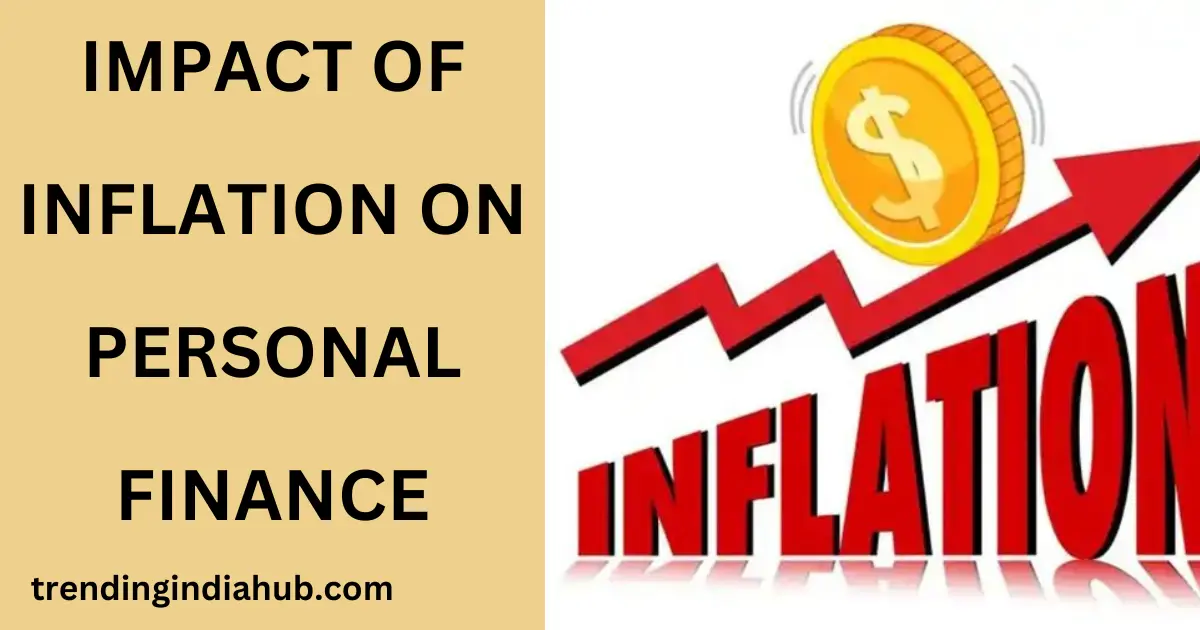First of all,
Table of Contents
(impact of inflation)The slow but steady rise in costs of items and services over time is known as inflation, and it can greatly affect people’s budgets. Maintaining financial stability requires an awareness of the effects of inflation, which range from diminishing purchasing power to impacting savings and investments. We’ll examine how inflation affects several facets of personal finance in this extensive guide, along with practical advice on how to lessen its effects and protect your financial future.
Knowledge of the impact of inflation
Natural economic phenomena like supply and demand, governmental regulations, and economic expansion all have an impact on inflation. While high or fluctuating inflation can be difficult for people and households, moderate inflation is usually seen as beneficial to the economy.
There are numerous important areas where personal finance is affected by inflation, including:
Loss of Purchasing Power: Money loses purchasing power as prices for goods and services rise. This implies that over time, a given amount of money will purchase fewer goods and services, lowering people’s and families’ standards of living.
Savings and Investments: The true value of investment returns and savings can be diminished by inflation. Low-yield investments and traditional savings accounts might not be able to keep up with inflation, which would eventually cause a decline in purchasing power.
Debt Management: While inflation erodes the value of money, it can also benefit borrowers by reducing the real cost of debt. However, high inflation rates can lead to higher interest rates, making borrowing more expensive and increasing the burden of debt repayment.
Methods to Reduce the impact of inflation:
Consider putting the following tactics into practice to properly manage how inflation affects your finances:
Invest in Inflation-Protected Assets: Set aside a portion of your portfolio for assets that are guarded against inflation, like commodities like gold and silver, real estate investment trusts (REITs), and Treasury Inflation-Protected Securities (TIPS).
Invest in a Diverse Portfolio: This will help you control risk and protect your money from inflation. To lessen your exposure to inflationary pressures, spread your investments over a variety of asset classes, such as bonds, stocks, and alternative investments.
Concentrate on High-Yield Investments and Savings: Look for high-yielding equities, certificates of deposit (CDs), and savings accounts that provide returns that are higher than the rate of inflation. Even though there may be more risk involved, these investments offer a chance to increase and protect money over time.
Financial Goals Should Be Regularly Reviewed and Adjusted to Take Inflationary Pressure Into Account. When establishing savings goals and retirement plans, take into account variables such as growing cost of living, healthcare costs, and educational costs.
Maintain an Emergency Fund: Build and maintain an emergency fund to cover unexpected expenses and mitigate the impact of inflation on your day-to-day finances. Aim to save at least three to six months’ worth of living expenses in a liquid, accessible account.

In summary:(impact of inflation)
The impact of inflation on individual financial matters can be substantial, influencing debt management, investments, savings, and purchasing power. Through comprehension of the consequences of inflation and the application of preemptive tactics to lessen its influence, people can effectively manage economic difficulties and preserve their financial welfare. In an atmosphere where inflation is on the rise, manage your money with knowledge, diversification, and initiative.

